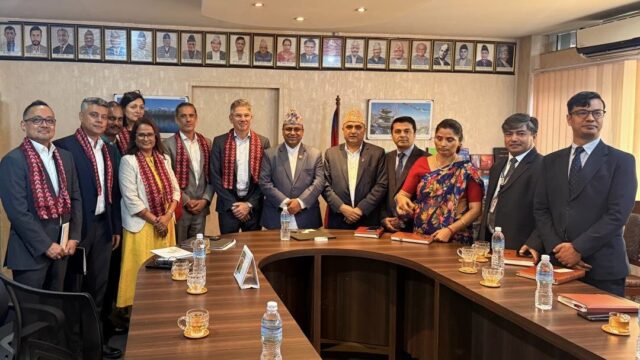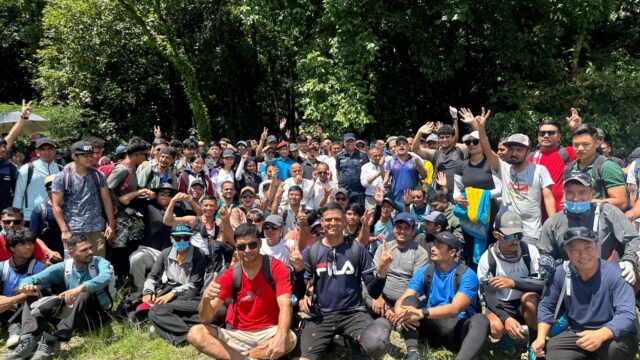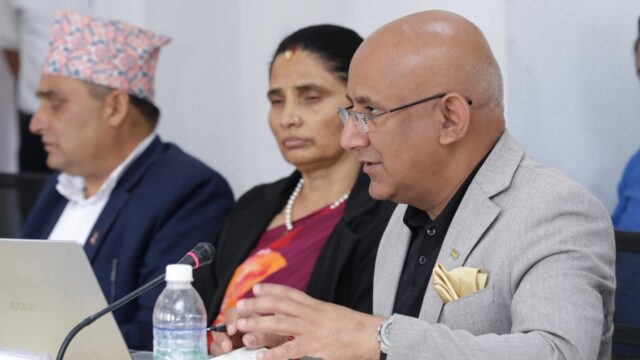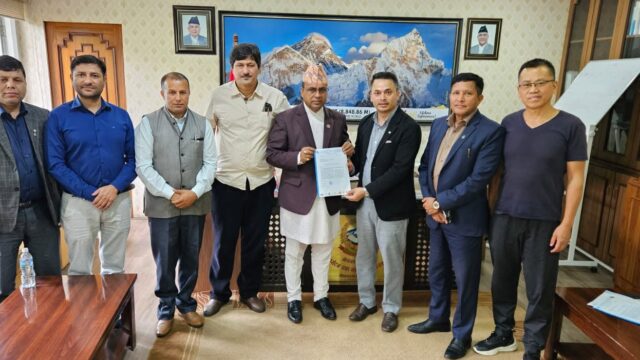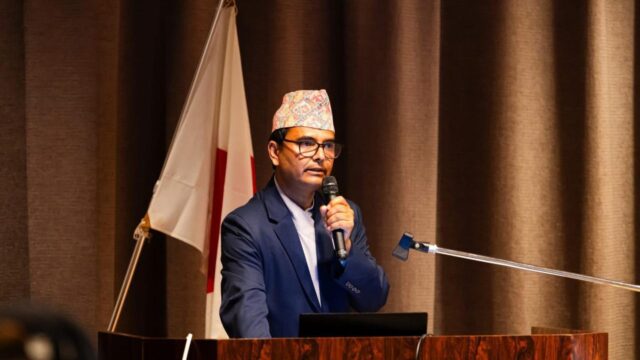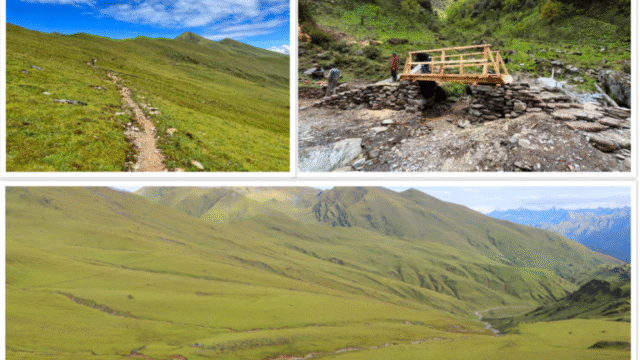Nepal’s government has reaffirmed its commitment to preserving the Himalayas and ensuring the safety of climbers, as concerns grow over the effects of climate change and increasing crowding on the world’s tallest peak, Mount Everest.
Government Reaffirms Commitment to Mountain Preservation
Speaking at the Everest Summiteers Summit held in Kathmandu, Minister for Tourism, Culture and Civil Aviation, Badri Prasad Pandey emphasized the government’s responsibility to safeguard both climbers and the fragile Himalayan ecosystem.
“The government is strongly committed to support mountaineering in every possible way by keeping climbers safe, by protecting the natural beauty of our peaks and by helping local communities grow alongside the spirit of adventure,” said Pandey.
He underscored that climate change and global warming are now putting the future of these sacred mountains at risk. “We must act with care, with wisdom, and with a deep sense of respect. These mountains are sacred, and it is our duty to protect them for the generations yet to come,” Pandey added.
Rising Concerns Over Crowding and Inexperience
The conference gathered over 100 climbers representing various countries worldwide to address some of the most pressing issues facing Everest. The primary focus of the discussions was the problem of overcrowding on the mountain, which has become a significant concern due to the increasing number of climbers attempting to reach the summit each season. Alongside this, participants highlighted the risks posed by climbers who may lack sufficient experience or proper preparation, which can lead to safety hazards and complications during the ascent.
Participants, including mountaineers and specialists, raised alarms over the rising number of climbers attempting the ascent within a limited window of time, resulting in hazardous bottlenecks along the narrow and icy routes near the summit.
Pandey concluded by highlighting Adriana Brownlee’s remarks, the youngest woman to climb all 14 peaks over 8,000 meters, who emphasized the critical role of experience. She stated, “It is essential that everyone on the mountain has sufficient mountaineering expertise. Those who face difficulties or find themselves alone must be capable of self-rescue.”
Nepalese climber Purnima Shrestha expressed concern over the increasing commercialization of Everest expeditions, stating, “Many individuals attempting the climb are neither physically nor mentally prepared. This lack of readiness shows a disregard for Everest, and it’s one of the main reasons behind the traffic congestion on the route to the summit.”
Environmental Clean-Up Efforts
To tackle the environmental impact, Nepal’s government last year deployed a team of soldiers and Sherpas who successfully removed 11 tons of garbage, four bodies, and a skeleton from Everest during the climbing season.
Although there are no strict regulations regarding acclimatization, Everest climbing permits are valid for up to 90 days and are priced at $11,000 per climber. The official climbing season concludes in May, just before the monsoon begins.
Honoring Climbers Ahead of International Everest Day
The event also served as a platform to honor climbers from Nepal and abroad ahead of International Everest Day on May 29. This day commemorates the historic first ascent of Mount Everest by Sir Edmund Hillary of New Zealand and Tenzing Norgay Sherpa of Nepal in 1953.
Pandey concluded by stating that over 100 climbers from various countries such as Nepal, India, China, Australia, Bangladesh, Singapore, the Philippines, Palestine Territory, and the United Kingdom were honored with certificates of appreciation.
Notable honorees included:
- Mingma Sherpa – First South Asian to summit all 14 peaks above 8,000 meters
- Xu Zhu Oyun – The youngest Chinese summiteer
- Indian Climbers – Ashish Singh, Nisha Kumari, Anuja Vaidya, Baljit Kaur, Suvidha Kadlag, Surya Prakash, Shaik Himansha, Satyarup Siddhanta, Jyoti Ratre, and Aditi
Pandey emphasized, “The Nepal government is dedicated not only to advancing mountain tourism but also to ensuring the safety of climbers and safeguarding the Himalayas for future generations. It is our responsibility to nurture and protect these mountains for those who come after us.”

